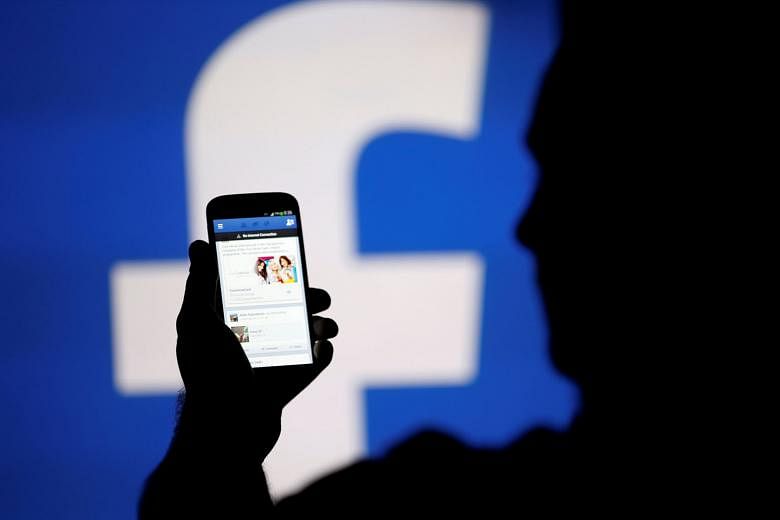SAN FRANCISCO • Facebook has introduced sweeping changes to the kinds of posts, videos and photos that its more than 2 billion members will see most often.
It says it will prioritise what their friends and family share and comment on, while de-emphasising content from publishers and brands.
The change is the most significant in years to Facebook's News Feed, the cascading screen of content people see when they log in.
Over the next few weeks, users will be seeing fewer viral videos and news articles shared by media companies. Instead, Facebook will highlight posts friends have interacted with - for example, a photo of your dog, or a status update many of them have commented on or liked.
The changes are intended to maximise content with "meaningful interaction" that people consume, chief executive Mark Zuckerberg said in an interview on Thursday.
The social network wants to reduce what he called "passive content" - videos and articles that ask little more of the viewer than to sit back and watch or read - so users' time on the site was well spent.
"We want to make sure that our products are not just fun but are good for people," he said.
Thursday's changes raise questions of whether people may end up seeing more content that reinforces their own ideologies.
And bogus news may still spread - if a relative or friend posts a link to an inaccurate news article that is widely commented on, that post will be prominently displayed.
Facebook has been under fire for months over whether its site has negatively influenced millions of users. The company has been dogged by questions about how its algorithms may have prioritised misleading news and misinformation in News Feeds, influencing the 2016 United States election and political discourse in many countries.
Those issues landed Facebook in front of lawmakers, who grilled it about its influence last year.
The goal of the overhaul, ultimately, is for something less quantifiable that may be difficult to achieve: Facebook wants people to feel positive, rather than negative, after visiting.
"When people are engaging with people they're close to, it's more meaningful, more fulfilling," said Mr David Ginsberg, director of research at Facebook.
The repercussions from Facebook's new News Feed changes will almost certainly be far-reaching. Publishers, nonprofits, small business and many other groups rely on the social network to reach people, so de-emphasising their posts will probably hurt them.
Last week, Mr Zuckerberg posted on Facebook about his 2018 goals, including ensuring "time spent on Facebook is time well spent".
He said he was now focusing his company around the new approach and product managers are being asked to "facilitate the most meaningful interactions between people," rather than the previous mandate of helping people find the most meaningful content, he added.
NYTIMES

